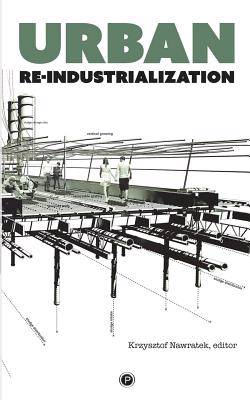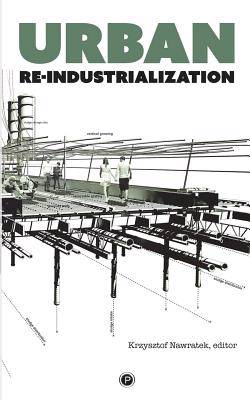
Suite à une grève chez bpost il n'est temporairement pas possible de choisir pour livraison à domicile ou à une autre adresse. Besoin de quelque chose en urgence ? Choissisez pour retrait en magasin ou passez plutôt dans un magasin Club à proximité.
- Retrait gratuit dans votre magasin Club
- 7.000.000 titres dans notre catalogue
- Payer en toute sécurité
- Toujours un magasin près de chez vous
Suite à une grève chez bpost il n'est temporairement pas possible de choisir pour livraison à domicile ou à une autre adresse. Besoin de quelque chose en urgence ? Choissisez pour retrait en magasin ou passez plutôt dans un magasin Club à proximité.
- Retrait gratuit dans votre magasin Club
- 7.000.0000 titres dans notre catalogue
- Payer en toute sécurité
- Toujours un magasin près de chez vous
Description
Urban re-industrialisation could be seen as a method of increasing business effectiveness in the context of a politically stimulated 'green economy'; it could also be seen as a nostalgic mutation of a creative-class concept, focused on 3D printing, 'boutique manufacturing' and crafts. These two notions place urban re-industrialisation within the context of the current neoliberal economic regime and urban development based on property and land speculation. Could urban re-industrialisation be a more radical idea? Could urban re-industrialization be imagined as a progressive socio-political and economic project, aimed at creating an inclusive and democratic society based on cooperation and a symbiosis that goes way beyond the current model of a neoliberal city?In January 2012, against the backdrop of the 2008 financial crisis, Krzysztof Nawratek published a text in opposition to the fantasy of a 'cappuccino city, ' arguing that the post-industrial city is a fiction, and that it should be replaced by 'Industrial City 2.0.' Industrial City 2.0 is an attempt to see a post-socialist and post-industrial city from another perspective, a kind of negative of the modernist industrial city. If, for logistical reasons and because of a concern for the health of residents, modernism tried to separate different functions from each other (mainly industry from residential areas), Industrial City 2.0 is based on the ideas of coexistence, proximity, and synergy. The essays collected here envision the possibilities (as well as the possible perils) of such a scheme.TABLE OF CONTENTS //Introduction: Urban Re-industrialization as a Political Project (Krzysztof Nawratek)PART 1: Why Should We Do It? / Re-industrialisation as Progressive Urbanism: Why and How? (Michael Edwards & Myfanwy Taylor) - Mechanisms of Loss (Karol Kurnicki) - The Cultural Politics of Re-industrialisation: Some Remarks on Cultural and Urban Policy in the European Union (Jonathan Vickery)PART 2: Political Considerations and Implications / 'Shrimps not whales': Building a City of Small Parts as an Alternative Vision for Post-industrial Society (Alison Hulme) - 'Der Arbeiter': (Re) Industrialisation as Universalism? (Krzysztof Nawratek) - Whose Re-industrialisation? Greening the Pit or Taking Over the Means of Production? (Malcolm Miles) - Crowdsourced Urbanism? The Maker Revolution and the Creative City 2.0. (Doreen Jakob) - Brave New World? (Tatjana Schneider) - The Political Agency of Geography and the Shrinking City (Jeffrey T. Kruth)PART 3: How Should We Do It? / Beyond the Post-Industrial City? The Third Industrial Revolution, Digital Manufacturing and the Transformation of Homes into Miniature Factories (John R. Bryson, Jennifer Clark, & Rachel Mulhall) - Conspicuous Production: Valuing the Visibility of Industry in Urban Re-industrialisation Strategies (Karl Baker) - Industri[us] (Christina Norton) - Working with the Neighbours: Co-operative Practices Delivering Sustainable Benefits (Kate Royston) - Low-carbon (Re-)industrialisation: Lessons from China (Kevin Lo & Mark Yaolin Wang
Spécifications
Parties prenantes
- Auteur(s) :
- Editeur:
Contenu
- Nombre de pages :
- 188
- Langue:
- Anglais
Caractéristiques
- EAN:
- 9781947447028
- Date de parution :
- 24-07-17
- Format:
- Livre broché
- Format numérique:
- Trade paperback (VS)
- Dimensions :
- 127 mm x 203 mm
- Poids :
- 190 g







